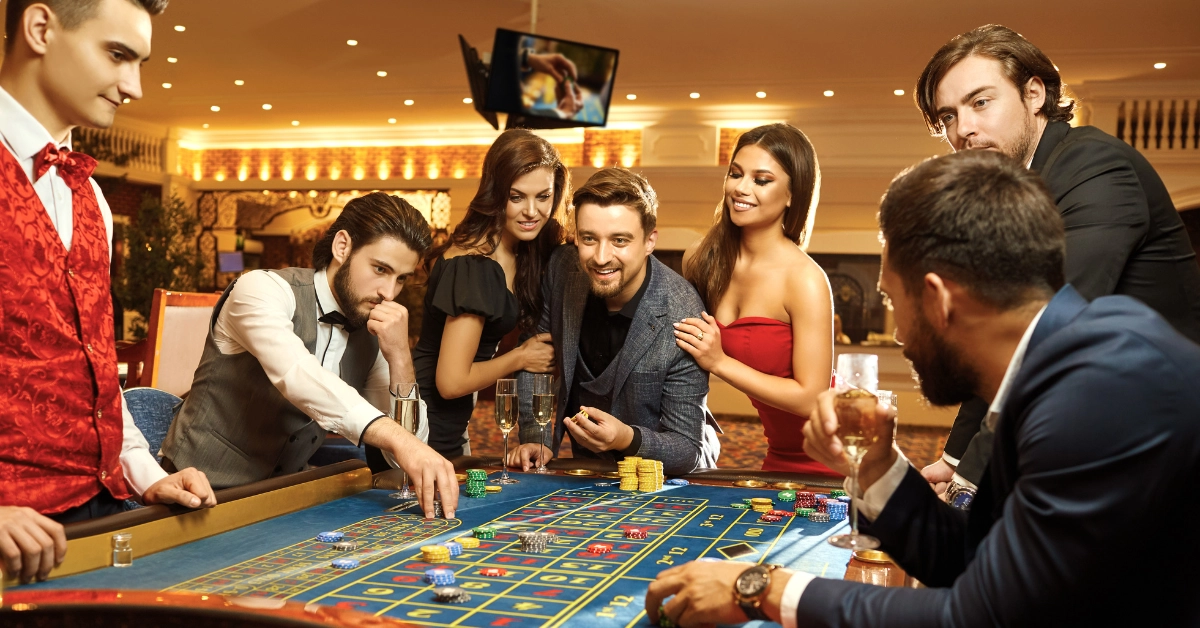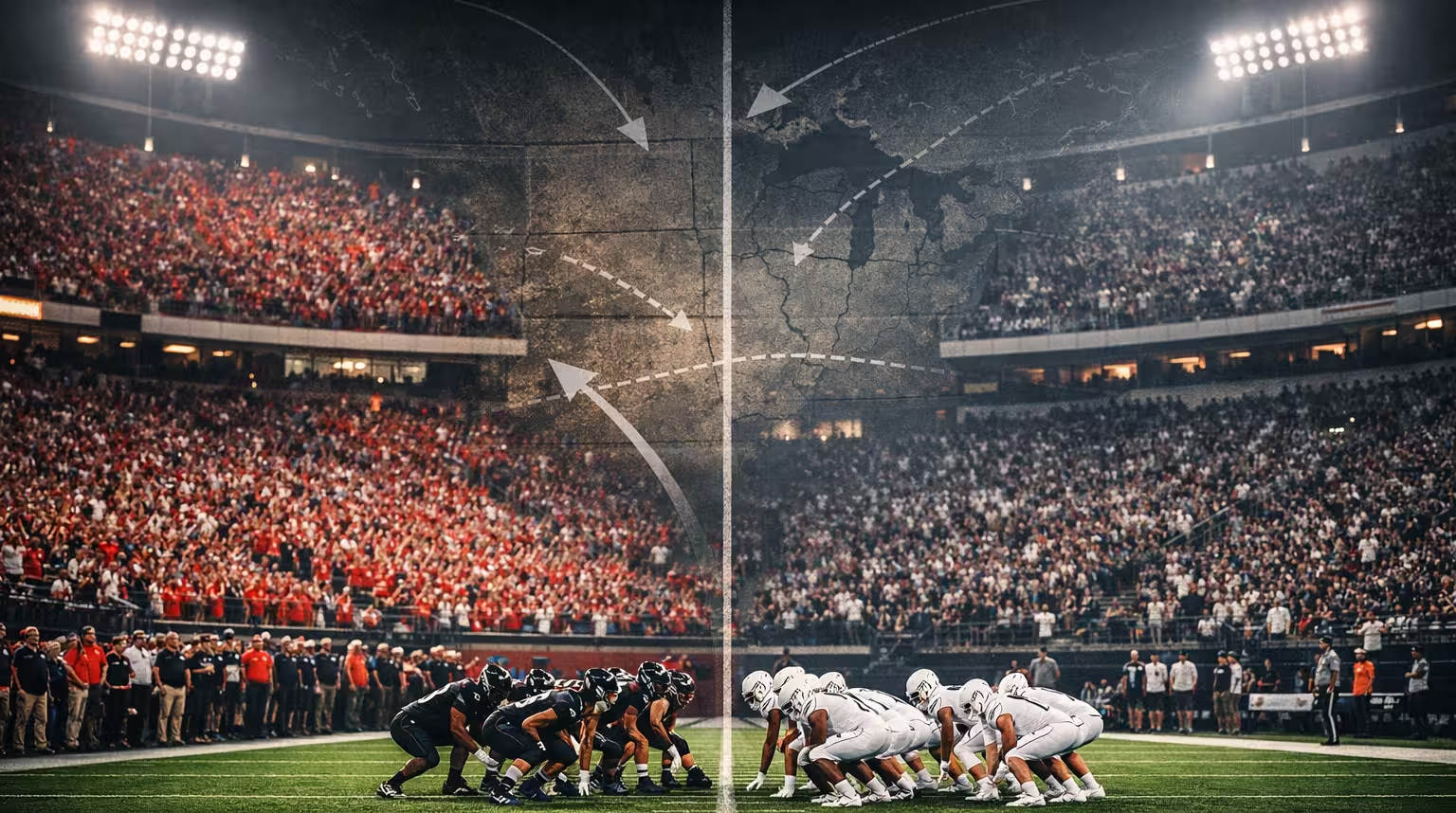The Social Impact of Gambling: Positive and Negative Effects

Entertainment is what keeps most of us going from one day to the next. Had a tough week at work? This weekend, you’ll get to do something fun. That band you’ve been dying to see live? You just scored tickets. The new Marvel crossover movie? You’ll be able to see it soon. Everyone has their own idea of what being entertained entails, like the ones we listed above. But there is one form of entertainment that is universal—gambling.
It has always been and remains a staple of the entertainment world, whether legal now or illegal in the past. And the pull was so strong that being against the law didn’t stop people from betting and playing!
But did you know that gambling isn’t solely about personal entertainment or winning and losing? It has pretty wide-reaching social implications around the world.
We are going to get into both the positive and negative social impacts that are attached to gambling so you, dear readers, can walk away with a balanced view of what they are and why they matter!
Overview of Gambling in Society
Gambling has always been around, but it wasn’t talked about as being mainstream entertainment. It’s a part of the human experience—like the stories we tell, music, or movies. And what started out as bets over games has changed into a global industry that slots into our everyday lives. If you’re rolling dice in a street game or hitting the “spin” button on an online slot at a gambling site, it has an undeniable appeal. Where did it originate, why has it always been so popular, and just how big is the industry?
History of Gambling
Way back when, possibly in a cave or a hut, people were throwing stones, sticks, or whatever they had on hand. Why? Well, to see who could guess the outcome, of yourself! These kinds of games of chance were merely the humble beginnings of gambling. Fast forward through history, and you’ve got dice games in ancient Egypt, betting on horse races in medieval Europe, and card games in the smoke-filled saloons across the Wild West.

And then came the 20th century, when gambling got its glow up, made itself respectable, and went mainstream. Las Vegas turned gambling into a glitzy spectacle, and Monte Carlo became known for its opulent elegance and high-stakes games. Then along came the internet, and suddenly, gambling was no longer tied to physical casinos—you can do it on a smartphone or computer! Anyone can bet on a sporting event, play a few rounds of poker, or try their luck at a virtual slot machine, and they don’t have to go anywhere to do it.
Current Popularity
Gambling has gone from being a hush-hush activity to a mainstream pastime that is embraced across almost all cultures. You’ve got yourself local bingo nights, blockbuster poker tournaments that are streamed live, and sports betting that is done in the office. The legalization of gambling in a lot of states and countries has done the heavy lifting in terms of more social acceptance.
What’s really changed things, though, is the technology behind it. The advent of online platforms has made gambling ridiculously easy and accessible. Create an account and you’re in! The social aspect has also changed—online games are a way for people to connect and compete with others from all over the world.
Gambling Does Big Numbers
The numbers don’t lie—gambling is absolutely massive. Globally, the market has exploded, with a valuation going from $449 billion in 2022 to over $700 billion in 2023. In the U.S. alone, around 57 million people are active gamblers, doing everything from playing slot machines to sports betting. Online gambling, in particular, has surged. In the UK, online platforms alone pulled in over £5.3 billion in revenue last year.
The figures back up the huge role that gambling has in the global economy and its pervasive presence in modern society.
Positive Social Impacts of Gambling
We don’t deny that gambling has a bad rep and that some of it is deserved. But we can’t gloss over the positive contributions it makes to society! It fuels economies, drives tourism, supports charities, and brings people together. Look below to see all of the ways that gambling contributes to society that might surprise you!
Economic Contributions
One of the most obvious benefits of gambling is its ability to generate economic activity. It does this through job creation, tax revenues, and the boost it gives to local businesses—the industry plays an important role in supporting communities.
Gambling establishments are big employers, and they offer jobs across a host of different positions. In traditional brick-and-mortar casinos, there are roles in customer service, security, hospitality, and management. Dealers, pit bosses, event coordinators, and entertainers find steady work in the industry. And the online gambling platforms have expanded job opportunities into tech-heavy fields, requiring developers, cybersecurity experts, graphic designers, marketing professionals, and customer service teams.
In the United States alone, the casino industry supports over a million jobs, and most of them are stable, well-paying roles. Gambling also generates indirect jobs in industries like transportation, construction, and food services, which further expands its economic footprint.
Legalized gambling pours billions of dollars into government budgets every year. The tax revenues go toward essential public services that make life better for its residents. States like Pennsylvania and New Jersey have used gambling revenue to support property tax relief, fund schools, and strengthen public infrastructure. Similarly, tribal casinos across the U.S. reinvest their profits into local programs, and they provide healthcare, education, and housing to their communities. Gambling isn’t solely for entertainment for governments—it’s a reliable revenue stream that supports social and economic progress.
Casinos and gambling hubs also benefit the businesses that are around them. Restaurants see an uptick in diners, hotels book more rooms, and retail shops welcome in more shoppers. Even the smaller, family-run businesses that are located near gambling venues will experience a steady increase in traffic from visitors.
In major gambling cities like Las Vegas or Atlantic City, the impact is way more pronounced. Tourists visiting casinos explore the surrounding attractions, eat at local restaurants, and shop in nearby stores. The ripple effects extend way past the casino floors, as it gives a boost to entire local economies.
Tourism Benefits
Gambling venues are powerful magnets for visitors, and they bring in tourists from all over. The destinations don’t only attract gamblers—they create entire ecosystems of tourism-driven businesses.
Some cities and regions owe their international reputation and fame to their gambling industries. Las Vegas is synonymous with entertainment, and it attracts millions of tourists annually. Macau, known as the “Gambling Capital of the World,” is a prime example of how casinos can become a centerpiece of a thriving tourist economy.
It’s not only the big-name cities, though—smaller towns with casinos or racetracks usually see a constant flow of visitors, and that helps sustain local economies. Tourists don’t just gamble—they book hotel stays, eat out, and take part in other activities, which spreads their spending across the community.
In some cases, gambling revenues are reinvested into local improvements. The funds can help build parks, cultural centers, or upgrade roads and public transportation systems. By allocating gambling profits to these kinds of projects, communities can improve the quality of life for its residents while also making their areas more attractive to any future tourists.
Charitable Contributions and Community Programs
Yes, gambling brings in big money, but it also gives back! The profits it generates is a major source of support for charities and community programs.
Most gambling operators contribute a portion of their earnings to different charitable causes. Lottery programs, in particular, have a long history of supporting education, healthcare, and environmental initiatives. In the UK the National Lottery has raised billions of pounds for community projects and nonprofits, which funds everything from local sports teams to large-scale conservation efforts.
The financial support means that organizations are able to expand their work and reach so many more people who are in need. It’s a side of gambling that tends to go unnoticed but it has a lasting impact on society.
Modern gambling operators are also taking the steps required to address the dangers that are sometimes associated with gambling. Most fund programs that promote responsible gambling, which is when education and resources are available for those who need help. Initiatives like self-exclusion programs, addiction helplines, and public awareness campaigns are becoming standard practice in the industry.
In addition to direct assistance for those who are struggling, gambling companies also invest in broader social responsibility programs, like the funding for addiction research and treatment centers. The efforts show that there is a growing awareness of the industry’s role in creating and maintaining safe and responsible gaming environments.
Personal Enjoyment and Social Connections
In addition to the numbers and economic impacts, gambling is also a source of fun and connection for so many people!
For countless people, gambling is just a way to relax and unwind. A night out at the casino or a few spins on a virtual slot machine gives them a break from daily life stressors. The excitement of the games, the chance to win real money, and the overall atmosphere make gambling a beloved form of entertainment.
Some like the mental challenge of games like poker or blackjack, while others are drawn to the bright lights and energy of slot machines. Regardless of the game, gambling gives them a form of leisure that so many people genuinely love.
Gambling venues also serve as social spaces where friends meet up for poker nights, couples try their hand at roulette, and strangers bond over the excitement of a win. Even online gambling platforms build a sense of community via multiplayer games and live events, where players can interact with one another during gameplay.
These social opportunities can be just as important as the games themselves for some people, as they are a way to connect, chat, and build relationships. Sometimes, gambling is a social activity as much as it’s a solo game!
Negative Social Impacts of Gambling
Ok, so we’ve gone over the positive aspects of it but now we’ve got to give equal time to the negative social impacts of gambling. Addiction is the most commonly known behavioral disorder that disrupts and can ruin lives. It can cause mental health struggles, financial chaos, and strained relationships, and that results in a ripple effect that tears through families and communities.
Problem Gambling
Compulsive gambling has become a bigger issue in many parts of the world, and those who struggle with it suffer from an inability to stop or control their betting, regardless of the harm it causes to their personal and professional lives. Estimates show that millions of adults worldwide are impacted by this disorder, with some studies placing the prevalence at up to 2% of the population in certain regions. And no, it’s not only some unlucky bets or losing streaks; it’s a compulsive cycle that can and does devastate lives.
The link between problem gambling and mental health is well-documented, and chronic stress, anxiety, and depression are very common among those who are affected. In the more severe cases, feelings of despair can cause suicidal thoughts or actions. The impact of gambling on mental well-being stems from both the emotional toll of losing money and the guilt associated with compulsive behavior. The cycle erodes self-esteem, and that makes it even harder for people who are suffering to reach out for help.
There are people who gamble beyond their means, and that can cause dire financial consequences. Debts will pile up and possibly result in loan defaults, repossessions, and bankruptcies. Some gamblers will resort to borrowing money from friends or family, which only further strains their personal relationships. In the worst case scenarios, problem gamblers might turn to illegal activities to sustain their gambling habits, which only compounds the damage to their lives and those around them.
Impact on Families and Relationships
Gambling addiction doesn’t just affect the individual who is in its grip—it can send shockwaves through families and social circles, causing tension, mistrust, and a lot of emotional distress.
A person who is struggling with gambling addiction might neglect their responsibilities at home, and that creates resentment and mistrust among their loved ones. Relationships with friends and family can deteriorate as well if the addict becomes increasingly isolated or secretive about their habits. The emotional toll on partners and children can be profound and leave lasting scars—even after the behavior stops.
The strain that gambling can put on relationships is so severe that it’s a super common factor in divorces. Financial instability, broken trust, and emotional neglect are recurring themes in certain cases, and courts frequently cite gambling addiction as a contributing factor to family breakdowns, which only underlines the far-reaching consequences of this type of behavior.
The children that live in households that are affected by gambling addiction may suffer from neglect, both financially and emotionally. Parents struggling with addiction might prioritize gambling over their kids’s basic needs, like paying for food, education, or housing. This kind of neglect can have lifelong effects on children—some will have academic struggles and emotional trauma.
Social Costs and Crime
The wider societal impact of gambling includes rising crime rates, connections to illegal operations, and extra burdens on public resources.
To fuel their gambling habits, some people will turn to fraud, theft, or embezzlement. The crimes not only affect their victims but also put an additional strain on law enforcement and judicial systems. Reports indicate that areas with high gambling activity more than likely will experience an increase in crimes that are linked to gambling-related financial desperation.
Illegal gambling operations are sometimes linked to organized crime networks, and these operations usually fund other illegal activities, like drug trafficking or money laundering—this is a much darker dimension to gambling’s impact on society. Even legal gambling can sometimes indirectly enable these kinds of illegal activities, particularly if regulations are not enforced.
Like we said, gambling addiction doesn’t just harm one person; it also creates a financial burden on public health systems. Treatment for gambling addiction, as well as associated mental health issues, takes resources that could otherwise be directed elsewhere. Governments and healthcare providers have to invest in programs to address these challenges, as they can strain budgets and limit the availability of other services to people in need.
Economic Drawbacks
Yes, gambling generates a lot of economic benefits, but there are also undeniable drawbacks—like wealth concentration and decreased workplace productivity.
Gambling critics argue that gambling profits tend to flow to only a small group of operators, but vulnerable populations disproportionately shoulder the losses. The imbalance raises some serious ethical questions about the long-term impact of gambling on economic equity, particularly in low-income communities where the social and financial consequences will hit the hardest.
Gambling addiction can also impact a person’s workplace performance. Absenteeism, missed deadlines, and poor focus at work are common among people who are consumed by their gambling habits. In some cases, gambling-related stress can get them fired, which only exacerbates the financial and emotional struggles that are happening to the person and their family.
Balancing the Positive and Negative Impacts
It’s official: Gambling is a nuanced and complicated source of entertainment that comes with good and bad impacts. On the one hand, it gives people entertainment, creates economic opportunities, and supports social connections. But on the other hand, it can result in addiction, financial struggles, and social problems when it is not done responsibly. Striking a good balance between the positive and negative impacts of gambling is a must for minimizing the harm while maximizing the benefits!
Recognizing the Dual Nature of Gambling
Gambling is not inherently good or bad—it’s a pastime with a dual nature that all depends on how it is regulated, practiced, and understood. It provides enjoyment for individuals, stimulates local economies, and generates tax revenues that benefit public services. For most people, gambling is a harmless leisure activity that is exciting and entertaining. And don’t forget that gambling supports a ton of jobs in industries like hospitality, technology, and tourism.
But the negative impacts of gambling cannot be ignored or overlooked. For those who are prone to addiction, gambling can cause severe consequences, including financial ruin, mental health struggles, and fractured relationships. Communities can also experience increased crime rates and public health costs that are directly related to problem gambling. The contrasting outcomes highlight the need to recognize gambling’s dual nature and approach it with both thoughtful regulation and personal responsibility.
Efforts to Minimize Negative Effects
In response to the dangers that are associated with gambling, various measures have been put into place to protect people and communities. The initiatives have a singular goal—to decrease harm while promoting the safest gambling practices.
- Responsible Gambling Programs: Most organizations and governments have developed programs to educate people about responsible gambling practices. These programs emphasize the importance of setting limits, understanding the risks involved, and recognizing when gambling becomes problematic. For example, the National Council on Problem Gambling provides educational resources and workshops to help people gamble safely and stay away from harmful patterns.

- Self-Exclusion Policies: Self-exclusion programs allow individuals to voluntarily ban themselves from entering casinos or accessing online gambling platforms for a specific period. This option is particularly beneficial for those who recognize that their gambling habits are becoming harmful and want to take proactive steps to regain control. In New Jersey, the Division of Gaming Enforcement has made self-exclusion policies much more accessible to help people who are struggling with gambling addiction.
- Community Awareness Campaigns: Public awareness campaigns play a super important role in educating communities about the risks of gambling and the resources available to those in need. The campaigns usually involve partnerships between governments, non-profits, and gambling operators. The American Gaming Association has launched initiatives to raise awareness about responsible gambling, and it includes comprehensive guides on best practices and regulatory standards.
Encouraging Responsible Gambling
Encouraging responsible gambling requires three things: education, personal accountability, and access to support systems. When these three elements are in place, people are much more likely to engage with gambling in a way that cuts back on the risks.
- Moderation: Practicing moderation is the key to responsible gambling, and it means setting clear limits on both the amount of money and the amount of time spent gambling. By adhering to these boundaries, people can enjoy gambling as a form of entertainment without the risk of serious financial or any negative emotional consequences.
- Education: Giving people accurate information about gambling is essential for empowering them to make the most informed choices. Educational efforts should include teaching people about the odds of winning, the nature of gambling as a form of entertainment and not a way to make money, and the warning signs of addiction. When people understand what they are engaging in, they are way better equipped to stay clear of any harmful behaviors.
- Support Systems: Access to strong support systems is critical for those who may be struggling with gambling-related issues. Counseling services, support groups, and addiction treatment programs provide a safety net for those who are in need. Helplines like the National Problem Gambling Helpline (1-800-GAMBLER) connect people to resources and assistance in their local area—it’s immediate support and guidance.
Future of Gambling and Its Social Impact
Gambling is still evolving and will continue to do so! Technology is making it more accessible, laws are adapting to the modern landscape, and there’s a growing awareness of the need to make sure that it stays safe and responsible. But where is it headed, and what does it mean for society?
Technological Advancements
Technology has completely upended gambling, but in a good way! Online gambling sites have made it so you don’t have to go to a physical casino, blockchain is making an entrance into the sector, and crypto casinos are giving patrons the transparency and security that players want. Meanwhile, virtual reality is coming into its own—soon, you could very well “walk” into a lifelike virtual casino where you can talk to other players while playing real money games.
Legislation and Regulation Trends
Governments are still figuring out how to manage and adapt to gambling’s new reality. Legalizing activities like sports betting is bringing in big tax revenues and creating jobs, but it’s not all about the Benjamins—the regulations surrounding it are getting stricter to make sure gambling stays fair and safe. Rules like betting limits, self-exclusion programs, and restrictions on ads are designed to protect people from possible harm while still letting them have their fun!
Growing Focus on Responsible Gambling
More attention is being paid to the risks of gambling, and that’s a good thing. Public awareness campaigns are teaching people how to gamble responsibly and recognize when it’s becoming a problem. Companies are also stepping up to the plate—or being required to step up—by introducing tools to monitor player behavior and intervene when it’s necessary or called for. Support systems like helplines and addiction counseling are expanding, making it easier for people to find help if needed.
Conclusion
There’s no doubt about it—gambling is definitely a mixed bag! On the plus side, it creates jobs, brings in extra money for communities, and is really fun! But the trade-off is that it can cause some serious problems, like addiction, financial struggles, and strained relationships with loved ones.
Below is a quick look back at what we’ve covered:
- The Upside: Gambling boosts economies, supports charities, and gives people a fun way to relax and socialize.
- The Downside: It can result in addiction, hurt families, and increase crime rates when it’s not handled responsibly.
Final Thoughts
Gambling has a complex role in society! Yes, it can improve lives and strengthen communities, but it also calls for careful regulation and personal responsibility to evade the possible harmful effects. When it’s done “right,” it is both fun and beneficial. But when it goes wrong, it can leave a lot of devastation in its wake.
What do you think? Do you feel like gambling helps or hurts communities? We’d love to know how you feel! Gambling is a personal choice, but in terms of broader social effects, it does impact us in one way or another. Think about both the good and the bad, and if you do partake, make sure to keep it fun and gamble responsibly.

Matthew specializes in writing our gambling app review content, spending days testing out sportsbooks and online casinos to get intimate with these platforms and what they offer. He’s also a blog contributor, creating guides on increasing your odds of winning against the house by playing table games, managing your bankroll responsibly, and choosing the slot machines with the best return-to-player rates.








